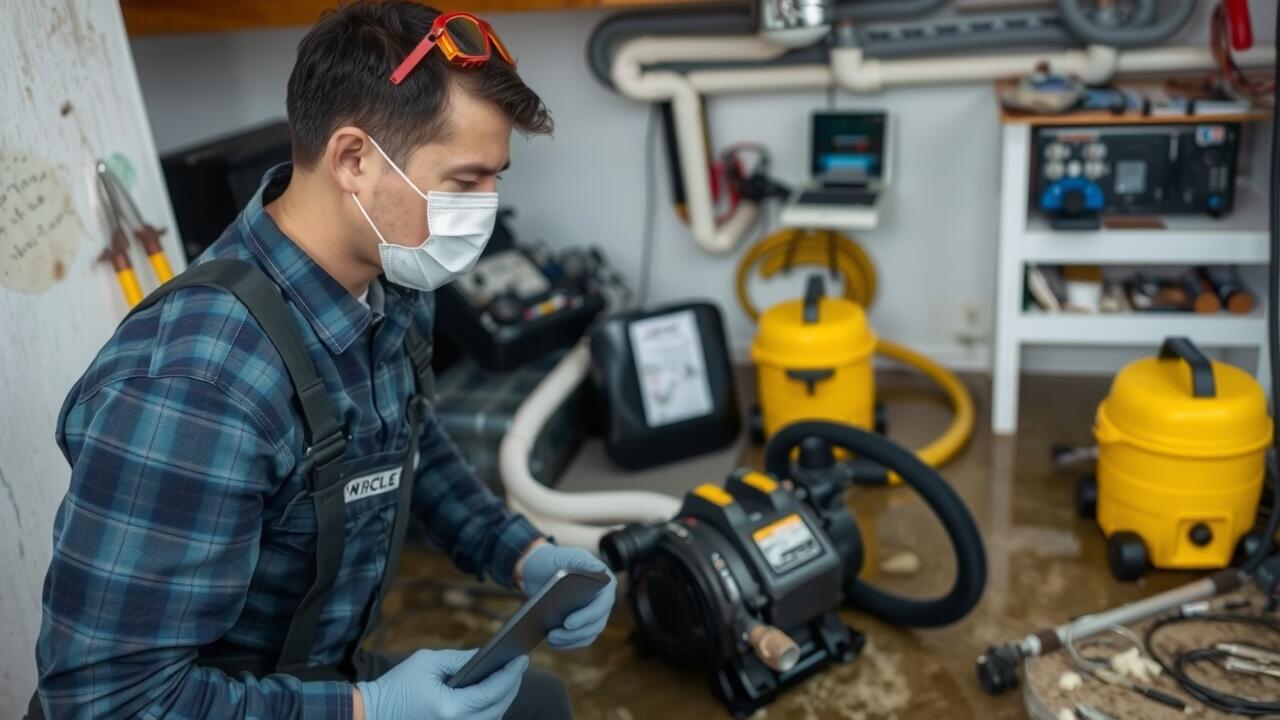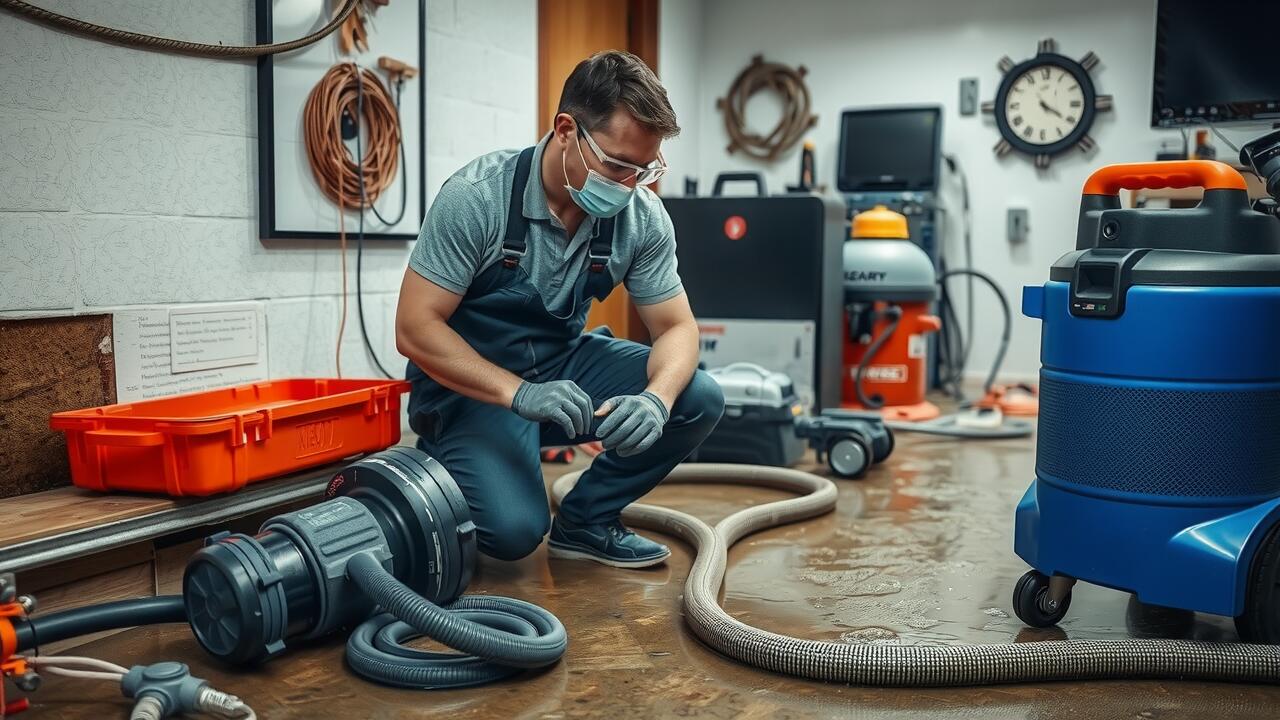
The Role of Flood Insurance
Flood insurance primarily covers damage caused by rising water, such as from heavy rainfall or overflowing rivers. However, it typically does not cover sewage backups. Homeowners must understand the difference between flood damage and issues stemming from sewer systems to ensure proper coverage for their property.
In areas like Grove City, Ohio, where flooding can occur, residents often seek policies that encompass a range of water-related issues. For homeowners facing a sewage backup, especially after a flood event, understanding their insurance policy is crucial. Sewage Backup Restoration in Grove City, Ohio, can become necessary if an unexpected overflow occurs, emphasizing the importance of knowing what your insurance covers.
How Flood Policies Relate to Sewage Issues
Flood insurance policies typically cover damage resulting from rising waters, but they often exclude sewage backups. Homeowners may be surprised to learn that standard flood policies do not specifically address issues related to sewage systems. In many cases, damage caused by a sewage backup will require separate coverage or an endorsement in the homeowner’s insurance policy. This distinction is essential for homeowners to understand, as it can significantly impact the financial responsibility for cleanup and repairs.
For residents in areas prone to flooding, Sewage Backup Restoration in Grove City, Ohio, may become a pressing concern. Ensuring that proper insurance coverage is in place can help mitigate the risks associated with such events. Homeowners should review their policies and explore additional options that cover both flood-related incidents and sewage system failures. Being proactive in this regard can save time and money in the event of an unforeseen sewage backup scenario.
Steps to Take After a Sewage Backup
Experiencing a sewage backup can be overwhelming and requires immediate action. First, turn off the electricity in the affected area to prevent any electrical hazards. Be cautious when navigating the space, as sewage can pose health risks. Next, contain the water if possible to minimize further damage. Protect your personal belongings by removing them from the area, which helps reduce the extent of loss. Contact local professionals who specialize in sewage backup restoration for assistance.
When considering recovery, prompt action is crucial for effective restoration. Reach out to experts in sewage backup restoration in Grove City, Ohio, who are well-equipped to handle such situations. They can assess the damage, remove contaminated materials, and provide thorough cleaning to prevent mold growth. Document the process by taking photos of the affected areas, which can be essential for insurance claims. Keeping a record of all communications and expenses related to the incident will further aid in the recovery efforts.
Immediate Actions for Homeowners
When faced with a sewage backup, homeowners should first prioritize safety. Turn off the main electrical power supply to prevent any electrical hazards. Avoid wading into the contaminated water as it may pose health risks. If possible, locate the source of the backup to identify whether it is a plumbing issue or an external problem related to municipal systems. Utilize gloves and protective clothing when assessing the situation.
Once the immediate dangers are mitigated, it’s crucial to begin the cleanup process. Contact a professional restoration service specializing in sewage cleanup, such as those that offer Sewage Backup Restoration in Grove City, Ohio. Document the affected areas with photos and gather any related receipts or evidence to support your insurance claim. Ensure all organic materials are properly discarded to prevent mold growth and further damage to the home.
Filing a Claim for Sewage Backup
When filing a claim for a sewage backup, gathering evidence is essential. Document the extent of the damage by taking photographs of affected areas, items, and any water levels. Keep a record of all communications with restoration services, as well as receipts for any repairs or cleaning. This documentation will strengthen your claim and help ensure proper compensation for damages incurred.
Homeowners facing sewage issues should consider contacting a professional service for assistance. For residents in need of Sewage Backup Restoration in Grove City, Ohio, it is advisable to work with certified local experts familiar with insurance processes. They can guide the homeowner through the claims process and may even assist in providing necessary documentation and reports to support the claim.
Documentation Needed for Insurance Claims
When filing an insurance claim for sewage backup, it is crucial to gather specific documentation to support your case. Start by compiling photographs of the affected areas and any damaged belongings. Detailed notes regarding the incident, including the date, time, and nature of the backup, will also be beneficial. If professionals have already assessed the damage, obtain their reports and any estimates for restoration services. This type of thorough documentation will bolster your claim significantly.
In addition, retaining receipts for any immediate expenses incurred, such as cleanup supplies or temporary housing, can be advantageous. If you have called in specialists for sewage backup restoration in Grove City, Ohio, include invoices from these services as part of your records. Having a comprehensive file of evidence can facilitate a smoother claiming process and increase your chances of receiving compensation for the damages.
FAQS
Does standard homeowners insurance cover sewage backup?
No, standard homeowners insurance typically does not cover sewage backup. You may need a separate policy or endorsement specifically for sewage backup coverage.
What type of insurance should I consider for sewage backup?
Consider purchasing a sewage backup endorsement or a separate sewer backup insurance policy to ensure you are covered in case of such incidents.
How can I determine if I have sewage backup coverage?
Review your homeowners insurance policy or contact your insurance agent to confirm whether you have sewage backup coverage included or if you need to add it.
What steps should I take immediately after a sewage backup?
First, ensure everyone’s safety and avoid contact with the sewage. Then, document the damage with photos, and contact a professional for cleanup and repairs.
What documentation do I need to file a claim for sewage backup?
To file a claim, you’ll typically need photographs of the damage, a list of affected items, receipts for repairs, and any relevant reports from professionals who assessed the damage.
